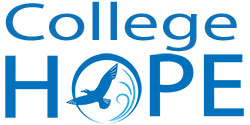- Calls to this hotline are currently being directed to Within Health or Eating Disorder Solutions
- Representatives are standing by 24/7 to help answer your questions
- All calls are confidential and HIPAA compliant
- There is no obligation or cost to call
- Eating Disorder Hope does not receive any commissions or fees dependent upon which provider you select
- Additional treatment providers are located on our directory or samhsa.gov
College Hope as a Resource for Eating Disorder Recovery

With another school year embarking, there is much to be done in preparation for a new season of learning and adventure. Students who are susceptible to developing an eating disorder, such as Anorexia, Bulimia, or Binge Eating Disorder, or who may be in recovery from one of these diseases, may be vulnerable during the transitional period to college. But, they can use College Hope as a Resource
Research has demonstrated the reality of this, with statistics showing that 91% of women survey on a college campus had attempted to control their weight through dieting [1], and 25% of college-aged women engaging in bingeing and purging as a weight management technique [2].
College Is A Wonderful Experience, But Often Comes With More Stress
The college years are an exciting time, full of potential for growth, progression, and self-discovery. However, this time period can also bring about feelings of uncertainty, anxiety, and self-doubt.
With changes occurring in all aspects of one’s life, from social to emotional to financial, new pressures and stresses can be overwhelming to face in the onset of the college years.
Eating disorders can easily develop during this sensitive transitional time in a student’s life, and understanding resources that may be available will be important to ensuring that a student’s college experience is successful and flourishing.
Why We Created College Hope as a Resource
At Eating Disorder Hope, we recognize the immense pressures that college student’s face and the need for resources on campus for students who are struggling with eating disorders.
In an attempt to promote eating disorder awareness and recovery on college campuses, Eating Disorder Hope has created College Hope, which serves as an eating disorder treatment resource for college and university campuses. Whether you are in your freshmen year of college or a senior preparing to graduate, using College Hope as a Resource and a place where you can find the resources you may need for help is crucial to your well-being.
Sometimes, Knowledge Of Support Is What You Need
Should there come a time during your college career that you are battling an eating disorder, do you know where you can turn to for help?
Perhaps you are a wellness counselor or residential assistant who regularly interacts with college students. Does your campus have resources in place for students who may be suffering with an eating disorder? Are you aware of treatment facilities or counselors you can refer a student to should you suspect an eating disorder?
Overwhelmed With Information? Let Us Help
The amount of information available can be overwhelming to navigate through. Eating Disorder Hope created the College Hope movement as a national collegiate effort to consolidate resources that are most relevant and helpful to college students. There is perhaps, no time more important than college, to have the guidance and support you need to find your way through the journey of the college life.
In an effort to build our College Hope program, share ideas between schools, and provide easily accessible resources for information and treatment, we invite you to share your school’s eating disorder resource information by contacting us directly.
College Hope exists as a community and central location of information from various schools for students who are seeking the help they need to overcome eating disorders.
Resources:
[1]: Shisslak, C.M., Crago, M., & Estes, L.S. (1995). The Spectrum of Eating Disturbances. International Journal of Eating Disorders, 18 (3): 209-219.[2]: The Renfrew Center Foundation for Eating Disorders, “Eating Disorders 101 Guide: A Summary of Issues, Statistics and Resources,” 2003.
About the Author:

As a Certified Intuitive Eating Counselor, Crystal has dedicated her career to helping others establish a healthy relationship with food and body through her nutrition private practice.
The opinions and views of our guest contributors are shared to provide a broad perspective of eating disorders. These are not necessarily the views of Eating Disorder Hope, but an effort to offer discussion of various issues by different concerned individuals.
We at Eating Disorder Hope understand that eating disorders result from a combination of environmental and genetic factors. If you or a loved one are suffering from an eating disorder, please know that there is hope for you, and seek immediate professional help.
Reviewed And Updated By: Jacquelyn Ekern, MS, LPC on June 18, 2019.
Published August 6, 2014, on EatingDisorderHope.com
